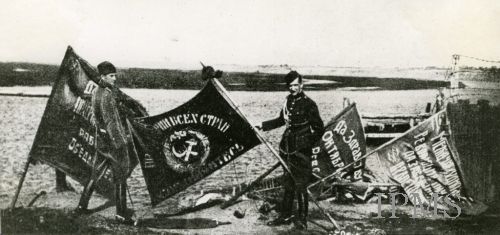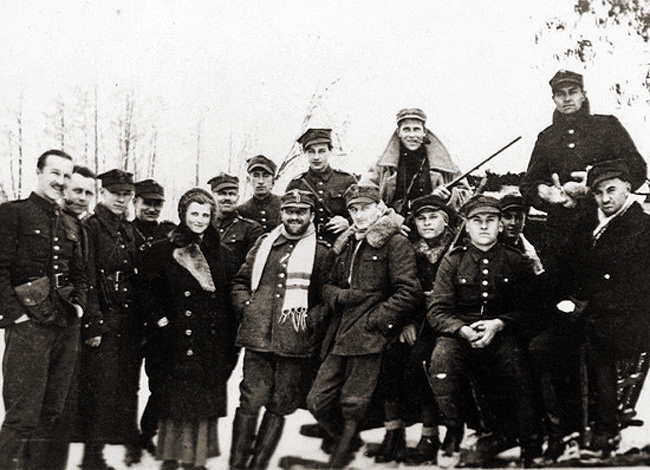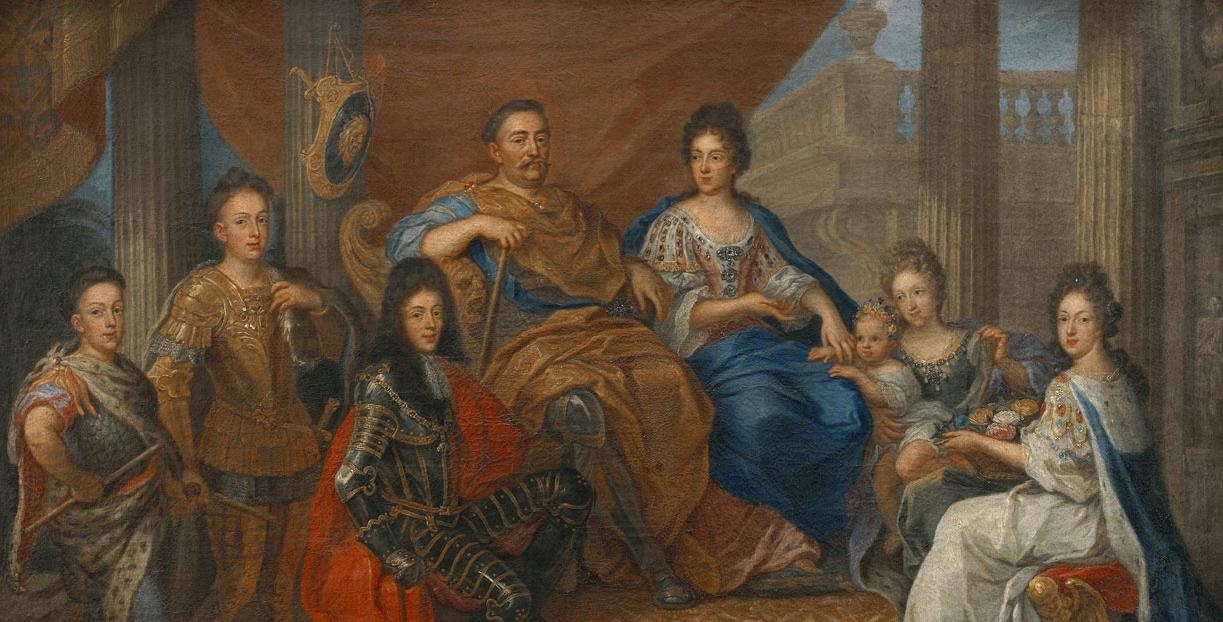The Battle of Warsaw, presented as a breakthrough in the history of the world, does justice to its significance, because it really determined the fact that for nineteen years the region of Central and Eastern Europe could develop a system of independent states, says historian Prof. Andrzej Nowak from the Jagiellonian University and the Polish Academy of Sciences.
Polish Press Agency: In the early summer of 1920, Poles for the first time fought against the Bolsheviks. Was Western Europe aware of the threat posed by the Bolsheviks?
Prof. Andrzej Nowak: For Western Europe, the most important experience was the fatigue and terror associated with the Great War, in which millions of men had died on the Western Front. It was a shock to France, Great Britain and Belgium. This was the prism through which all political relations were viewed, and none of the countries wanted to get involved in any new wars.
However, France differed from Great Britain as they felt directly affected by the conflict with Germany, as well as threatened by possible German revisionism and disagreement with the conditions dictated by the Treaty of Versailles. The French wanted to have an ally east of Germany, and Russia was such an ally during the First World War. Since Russia found itself in the depths of the civil war after 1917, and eventually fell under the grip of communism, the French looked for a “substitute ally”. If we look to the east of Germany, this could be only Poland.

It is understandable that the countries that suffered during the First World War did not want to get involved in another conflict, but were they not afraid of communism and the ideology espoused by the Bolsheviks?
Communism was not particularly popular in France or Great Britain. The historian Richard Pipes even wrote that there were probably many more nudists in Great Britain at that time than communists. The degree of infiltration or popularity of communist ideology in 1920 cannot be compared with the situation after the Second World War or in 1975, because communism had just begun its “march” through the institutions.
On the other hand, from the perspective of socialist and leftist currents, popular in Western countries, Bolshevism was viewed with a certain hint of sympathy, although it was not fully supported. It was an interesting “experiment” for them, which led in the right direction for the social emancipation of the oppressed classes, perhaps with brutal and uncivilized methods, but the Russian Bolsheviks deserved to be “given a chance.”
Poles, however, had the right to fear Bolshevism. To what extent was their fear understandable in Western Europe?
The expansion of the Bolshevik revolution, which in 1920 for the first time crossed the border of the former Russian empire and turned towards the center of Europe, was not regarded as a particular threat. In the West, they tried to reassure themselves that even if Soviet Russia headed to the center of Europe, it would certainly not reach the West. Until the Bolsheviks entered Germany, it was believed that there was no need to worry.
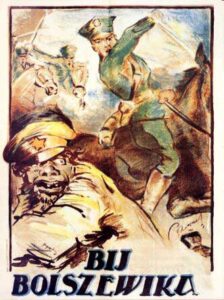
Almost no one in France or Great Britain had encountered real Bolshevism, so they did not understand what kind of terror the new ideology might entail. There were individual reports that reached, for example, The Times or the Journal des Débats, but they were of marginal interest for Western audiences. They were considered exaggerated accounts which reflected anti-communist hysteria. Winston Churchill, who was then the minister of war in the British government, persistently warned against Bolshevism in his writings. He was attacked heavily in the British press for this. He was left alone in the government because he was considered to be talking about things that were untested, and communism did not seem as terrible as Churchill described it. Therefore, it was not worth getting involved in any action directed against communism.
If Poland had not regained its independence in 1918, would the Bolsheviks have decided to start their march towards Europe?
For the Bolsheviks, the absolute priority was to reach Germany. Therefore, if there were no independent Poland, the Bolsheviks would be able to reach Germany even faster. The assumption of the Bolshevik command was clear: a revolution needed to be developed in Europe, and the most effective tool for this could only be the combination of the Bolshevik strength of Russia with the strength of the German working class, industry, and geopolitical power. The merger of communist Russia with Germany was essential to guarantee the triumph of the revolution throughout Europe.
The emergence of a number of states between Russia and Germany in 1918 irritated the Bolsheviks. Joseph Stalin, a member of the Politburo at that time, wrote in November 1918 that these new states, including Poland, were only a thin “partition wall” that could be easily penetrated by the power of the Red Army.
What specific plans did the Bolsheviks have regarding these countries?
Prof. Andrzej Nowak: The purpose of the political decisions made by the Bolshevik leadership in 1919 and 1920 was the liquidation of Poland’s independence, but also the destruction of the independence of any other country that found itself in the way of communist ideology. In fact, according to the assumption of the “Communist Manifesto” of Karl Marx and Friedrich Engels of 1848, there were to be no independent countries in the communist system after the victory of the revolution; nation-states and the question of independence were to disappear.
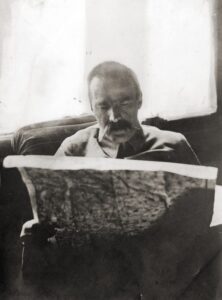
Stalin, on Lenin’s command, wondered what to do with countries like Poland that were to be conquered by the Red Army. In several texts in 1919 and 1920, he indicated that it required several stages to solve the question of the separateness of the countries which should join and subdue Moscow. At the lowest level were those countries that would be deemed incapable of any form of autonomy and would be incorporated into Bolshevik Russia. On the other hand, about countries such as Poland, Hungary and Austria, Stalin said that they must enter the structure of the Soviet state as separate Soviet republics, united in a federal system and subordinated to Moscow.
Were any steps taken in this direction?
The first Bolshevik government for Poland was arranged in Moscow and its composition was announced during the first Red Army offensive to the west – in January 1919. In the summer of 1920, another one was created: the Provisional Revolutionary Committee of Poland (Polrewkom) in Białystok headed by Feliks Dzerzhinsky, although formally it was Julian Marchlewski. On 4 August, the government decided to create a network of concentration camps in which all enemies would be confined – not only those who opposed the Soviet government, but also potential ones as well. It was believed that all relics of the old Polish identity should be removed and replaced with a new pantheon of “heroes”, such as Dzerzhinsky, Marchlewski or Karol Radek.
And what was Germany supposed to look like, which – as you said – was the main target of the Bolsheviks?
Naturally, Germany was to be included in the Soviet power structure or community on a different basis than Poland or other countries I have already mentioned, because they were to be on par with Russia. What is interesting here is to understand who would have turned out to be more important – Russia or Germany – in this new balance of power in the communist European republic? We will never find an answer to this question, because this type of union never came into being.
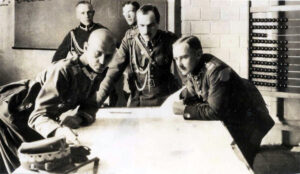
So Poland saved not only its independence, but also other countries in the region…
Some of these countries did not even realize it. For example, Czechoslovakia, which was on the list of immediate targets for Sovietization in 1920. It strongly opposed Poland, assuming that the Bolsheviks would stop after conquering Poland, which was an illusion. The Lithuanians had similar illusions, and they entered into a de facto alliance with the Bolsheviks in 1920, believing that if they got Vilnius from the Bolsheviks – and, as we remember, they got Vilnius for a few weeks – the Bolsheviks would allow them to enjoy independence and Vilnius for years. In reality, however, the Bolsheviks intended to eliminate the independence of Lithuania, Latvia and Estonia, as well as of the countries with which they had just concluded peace treaties, immediately after the conquest of Poland.
Did Poland save Russia in a sense?
Poland paradoxically saved Russia’s sovereignty and its advantage in the communist system, and the decision-making center of this ideology remained in Moscow. If the Bolsheviks had carried out their fundamental plan and had reached Berlin in 1920, Berlin would have become the center of the communist movement. The Eurasianists, i.e. the opponents of the Bolsheviks operating in exile, spoke about it directly. This movement saw in the defeat of the Bolsheviks near Warsaw the salvation of Russia’s sovereignty. The Eurasianists said that if Lenin went to Berlin, the Bolsheviks would become subjects of the center of civilization, namely Germany that would become the cultural and economic communist center. It is an interesting view of the consequences of the Bolshevik defeat in the clash with the Poles in 1920.
The Battle of Warsaw is considered to be the eighteenth breakthrough battle in the history of the world…
This term was coined by Lord Edgar Vincent D’Abernon, who was the head of the inter-Allied commission sent to Poland at the end of July 1920. He considered for Poland the possibility of some aid, actually only diplomatic, because there was no question of a military one. Interestingly, in July-August D’Abernon did not believe at all that Poland would defend itself, and even wrote to the center of his authorities in London that Poles were semi-barbarians who could neither fight nor organize the state so they would surely lose against the Bolsheviks. He wrote to the British Prime Minister that one should focus on defending Germany and that Poland was lost. When Poland won the battle, however, Lord D’Abernon changed his mind and felt that the importance of this victory should be emphasized, because then his personal rank as Western Allied adviser in this historic event was stronger. After several years, he wrote a book in which he considered the Battle of Warsaw to be the eighteenth decisive battle in the history of the world.
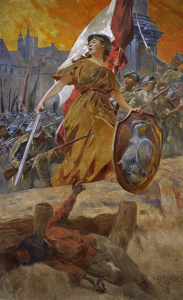
Can we identify other battles of similar importance in the history of Poland?
Only two such battles come to mind. One of them is, of course, the Battle of Vienna of 1683 and the general participation of the Polish-Lithuanian army under the command of King Jan III Sobieski. Although the forces of the then Ottoman Empire seemed to be losing momentum, they kept standing near Vienna, that is, in the then center of Europe. If it were not for this battle, Vienna would undoubtedly have had to capitulate, and the Habsburg Empire would also have collapsed. It is difficult to debate the possible consequences, but from the point of view of the position of Islam today, it would nevertheless matter whether Austria was an Islamic country from the end of the 17th century.
The Battle of Grunwald in 1410 seems to be equally important to me. The defeat of the Teutonic Order and its allies by joint Polish-Lithuanian forces was important not only for Poland, but also for the entire region of northern Europe. If the order then defeated Poland and Lithuania, the Polish-Lithuanian union would probably collapse, Poland would not defend relatively fresh sovereignty, and the political influence of both the order and the domination of German culture and economic advantage in the entire area would probably be established for the next centuries without any alternative. Although the German influence (cultural and economic) remained, alongside them, a new phenomenon on the map of Europe strengthened and lasted for the next 300 years – the Polish-Lithuanian Commonwealth, i.e. a powerful country that created the conditions for the construction of Central and Eastern Europe other than the German “Mitteleuropa “.
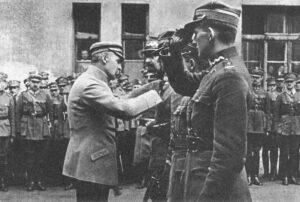
Can the Polish-Bolshevik war become an element of the revisionist historical policy that has been pursued by the authorities of the Russian Federation for some time?
For Putin and for the consciously constructed historical memory in today’s Russia, the Second World War is absolutely the most important and the entire image of the model memory is created around it. On the other hand, nobody speaks of 1920 as it was an obvious defeat. When propagandists in today’s Russia return to this topic, which they do very rarely, the prevailing picture is that the Russians lost the Battle of Warsaw solely due to their own mistakes. Only because of the dispute between Stalin and Mikhail Tukhachevsky the Bolsheviks had not managed to capture Warsaw. For Poland was too weak to defeat a powerful Russia.
When it comes to Russian-Polish relations, however, the fate of Soviet prisoners of war are mentioned, consistently recalling and constantly increasing the number of those who died in Polish captivity. 16-18 thousand died out of over 100 thousand taken prisoner in 1920. It is a very sad result of hunger, malnutrition and infectious diseases raging at that time, especially typhus. However, in today’s Russia there are still more and more articles stating that 60,000–80,000 died, and Vladimir Putin repeats these lies, equating this with the Katyn massacre. In this context, it is worth recalling one objective piece of information: in 1920, 207,000 soldiers died of infectious diseases in the Red Army. This number does not inlcude any “Polish camps”. It was, let us remember, the time of raging pandemics.
Interviewer: Anna Kruszyńska (PAP)

